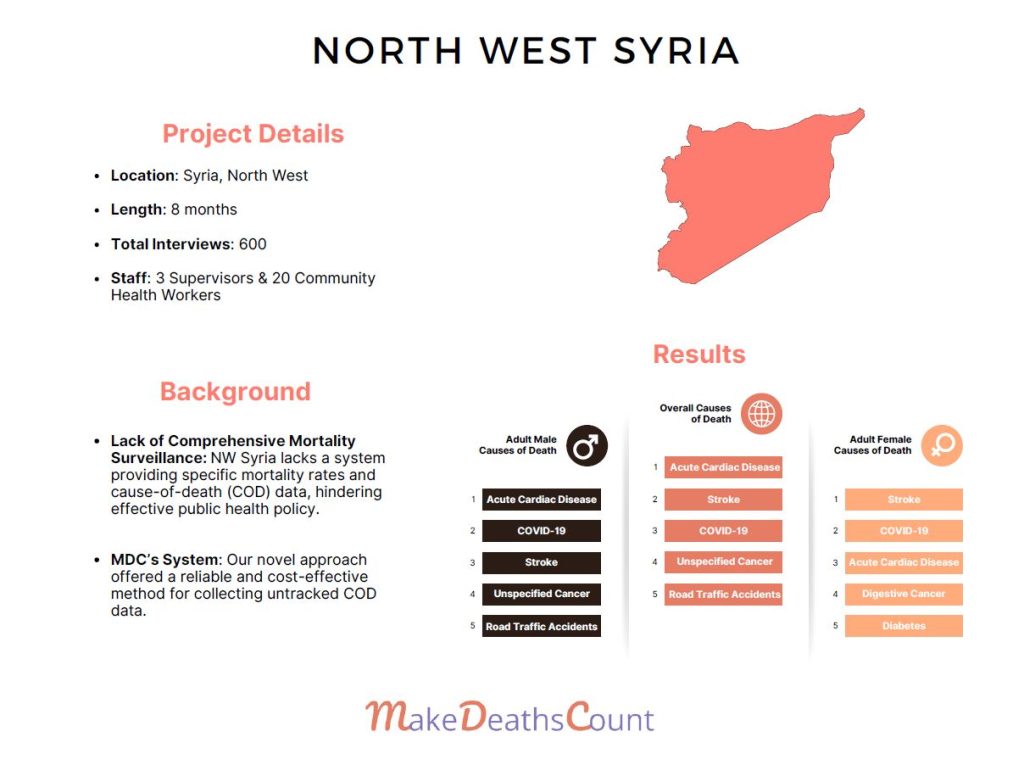
Civil registration and statistics of systems in countries around the world is vital to improving a citizen’s quality of living. Mortality surveillance particularly takes strides in improving the safety of citizens. Mortality surveillance specifically works to record and process deaths that occur in a certain area and analyze these records to pinpoint specific causes of death and ways to prevent them.
Particularly in low- and middle-income countries there is a scarcity of this data. According to the 2017 WHO World Health Statistics report, of the 194 World Health Organization (WHO) surveyed countries, 42% reported extremely low quality or no data on the number of their citizens who had died each year, and what they died from. This proves to be a significant problem in the reported countries healthcare systems. The lack of reliable patient mortality data is suggested to be one of the reasons for a lack of progression to improve these healthcare systems.
Without proper civil registration and mortality surveillance, there is a vital lack of information needed for civil, sustainable, and healthcare development of these lower- and middle-income countries. Until we can effectively provide this data the safety and quality of life of civilians in these countries remains stagnant.




